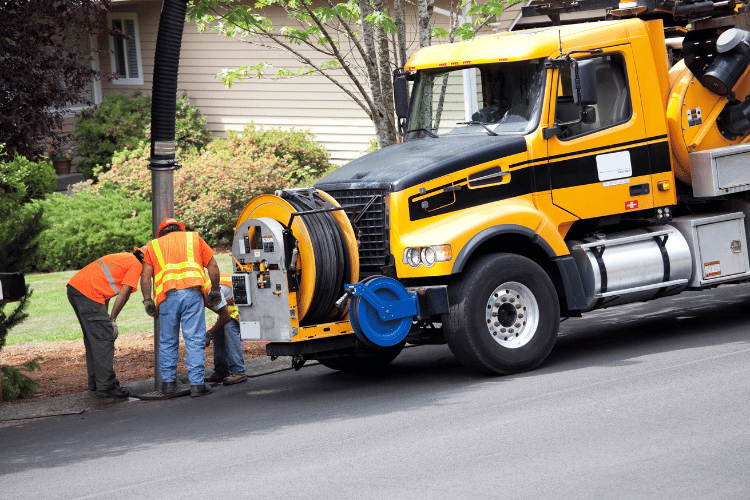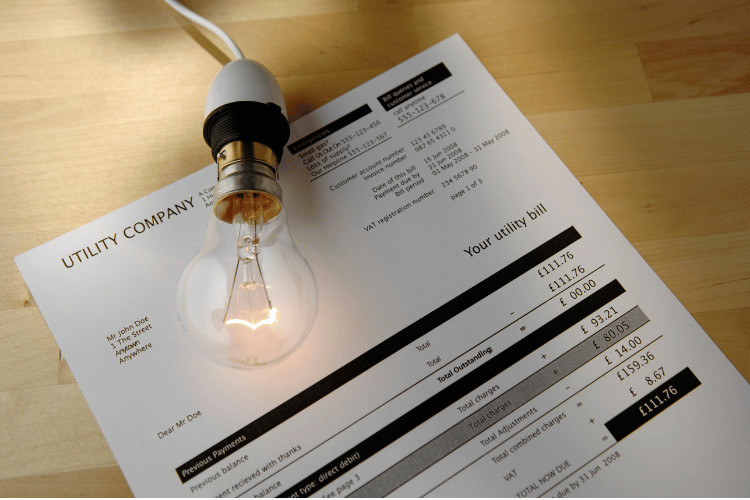Utility workers are crucial elements of any society. Though most people might overlook public utility as a viable career option, its jobs are actually widely available and relatively easy.
This begs the question, how many jobs are available in public utilities?
There’s a wide range of jobs in public utilities. You also have the option to work for multiple organizations. This means there are hundreds of jobs available in public utilities.
Do you want to find out more? In this article, we’ve explained the various job openings available in public utilities, their benefits, and even how to land a job! Let’s dive in.

How Many Jobs Are Available in Public Utilities?
There are over 500,000 available jobs in public utilities. The reason for this huge number of openings isn’t because the jobs are hard or unfulfilling. Alternatively, the market is constantly expanding, which causes a rise in demand.
Moreover, technology is continuously evolving. This leads to the availability of new essential positions that didn’t exist before.
How to Choose The Right Job in Public Utilities
Public utility workers provide essential services to society. They basically maintain the quality of life. There are a variety of jobs you can choose from in public utilities, including field and office jobs.
Furthermore, There are multiple sectors of public utilities. All of them are equally important. Naturally, you have to be adept in the sector you choose to work in.
Electricity
Working in electric power plants means you’re responsible for the generation and transmission of electricity. You can work with various sources of electricity depending on the organization. These sources include solar energy, nuclear energy, and natural gas.
There are many roles in electric generation. These jobs vary according to both skill and education. This means electric power plants can hire anyone from engineers to field operators.
Water And Waste Management
Water and waste management jobs entail the collection, transportation, and management of wastewater. A lot goes into these operations, which means there are multiple roles available in this sector.
For example, plant operators are responsible for working with the machinery and the computerized control systems in sewage treatment plants.
Alternatively, waste management officers create detailed plans to provide the most efficient, budget-friendly services.
Natural Gas
There’s no doubt that natural gas utility workers are crucial. The workers are responsible for the safety and maintenance of pipelines, as well as the installation, inspection, and regulation of facilities.
There are also engineering and office jobs in the natural gas sector. These jobs include administrative work, planning, and budgeting.
Why Choose a Career in Public Utilities
There are many reasons why public utility jobs are sought after. Not only do they offer plenty of benefits, but there aren’t a lot of requirements for landing a job in public utilities.
Essential Job
Public utility workers are the backbone of society. This means that having a job in public utilities makes you a part of something bigger. It’s an incredibly fulfilling career.
Additionally, this job is respectable, so it’ll surely help you gain a lot of approval in your community. After all, public utility workers are responsible for the upkeep of our daily lives.
Well-Paid
Since jobs in public utilities are vital, it goes without saying that they’re well-paying jobs. On average, utility workers make $16.89 an hour.
There are also opportunities for advancement and salary increases according to your skill. Furthermore, the more experience you gain while working in public utilities, the more likely you’ll get promotions and earn more!

Benefits
Most jobs in public utilities offer a multitude of benefits for their employees. That’s particularly true for long-term employees.
Health insurance is unparalleled in most public utility organizations. In addition, most public utility workers have a retirement plan, social security benefits, childcare, and even student loan forgiveness!
Not to mention that most public utility jobs have a pretty flexible paid leave.
Laid-Back Work Environment
Public utility work is typically laid-back. It doesn’t require multiple meetings, briefings, or back-and-forth e-mails. Instead, the work environment is fairly casual, especially if you compare it to other corporate-level jobs.
This can be a huge benefit for many individuals who don’t know how to navigate strict professional environments. You don’t need to learn any corporate jargon or office etiquette.
What Are The Requirements for Working in Public Utilities?
Fortunately, there are no particular requirements for working in public utilities. You don’t need to be a college graduate or have years of experience. More often than not, you might not even need a letter of recommendation. This makes jobs in public utilities great entry-level jobs.
The basic requirements are the following:
- High school Diploma or GED certificate.
- Minimum experience in facility maintenance or a related field.
Needed Skills for Public Utility Jobs
That said, there are many basic skills you’ll need if you want to work in public utilities. These skills depend on the sector you choose. You’ll basically need to be a jack of all trades.
However, the basic required skills are the following:
- Mechanical aptitude
- Good physical strength
- Problem-solving skills
- Organization skills
- Attention to details
- Administrative skills
Top Jobs in Public Utilities
If you’re still unsure which job you should go for in public utilities, here are the top ones to help you decide:
1. Utility Manager
Utility managers oversee the day-to-day operations of the plant. They’re responsible for a team of multiple technicians and engineers. Utility managers ensure the implementation of safety measures, schedule regular maintenance, and inspect customer complaints.
This job is available in all public utility sectors. However, it requires some experience. To get a position as a manager, you’ll have to first train as a plant technician or engineer.
Average annual salary: $85,000.
2. Plant Operator
Plant operators are a crucial part of the utility team. They’re responsible for operating and maintaining heavy machinery. This job can be quite physically demanding. However, it doesn’t require higher education.
This job is in high demand due to the complexity of tasks and the constant advancement of technology. So, most organizations require tech-savvy plant operators.
Average annual salary: $42,000.
3. Power Lineman
Without power linemen, public utilities wouldn’t exist. As the name suggests, a power lineman is responsible for the installation, maintenance, and repair of overhead and underground electrical power lines. So, it can be easy to understand how vital this job is.
Working with electricity requires highly-skilled hands. Additionally, the job is physically taxing, for this reason, you’ll need to finish a four-year apprenticeship to become a power lineman
Average annual salary: $63,000.
4. Water Resources Specialist

Water is a highly-valuable, limited resource. For this reason, water resources specialists are incredibly essential. They focus on the implementation of a successful water cycle. This includes the sanitation, delivery, and disposal of water.
Water resources specialists are highly-skilled scientists. Usually, most specialists have a degree in urban planning, engineering, or a related discipline.
Average annual salary: $80,000.
5. Gas Controller
Gas controllers work with natural gas pipelines, ensuring smooth operations. They’re responsible for the safe flow of gas and oil. Additionally, they carry out maintenance and repairs. Gas controllers must adjust temperature and pressure settings, as well as record and review overall operations.
Usually, there’s no need for higher education or a specific diploma to become a gas controller. Still, you’ll need at least two years of experience working in the oil and gas industry.
Average annual salary: $90,000.
6. Power Transmission Engineer
Power transmission engineers work on delivering power from multiple sources to other residential, commercial, and industrial spaces. This requires planning safe transmission routes, surveying maps, and doing extensive research. They also need to be on-site during the building stage to resolve any issues.
Naturally, to become a power transmission engineer, you need a degree in electrical engineering or a related field of study.
Average annual salary: $90,000.
7. Substation Engineer
Substation engineers design and implement various substation projects in one plant. They also determine the required cables and other machinery. Simply put, they’re responsible for electrical transmission within the plant.
Substation engineers can work in a variety of sectors. They need a bachelor’s degree in electrical engineering, as well as relevant experience.
Average annual salary: $110,000.
8. Power System Dispatcher
Typically, power system dispatchers are the main connection between consumers and providers. They respond to calls and complaints. Additionally, they coordinate maintenance and installations with power providers.
Power system dispatchers work in an office setting. This means the job isn’t as physically demanding. However, it requires excellent communication skills and computer knowledge. Power systems dispatchers also need to be aware of electric utility systems and GIS applications.
Average annual salary: $83,000.
9. Renewable Energy Manager
Renewable energy managers are responsible for tracking and recording energy consumption. They also need to develop and implement energy-saving strategies. This job is highly vital for a sustainable environment.
The requirements for this job are pretty flexible. You’ll need to have a degree in physical sciences, engineering, business development, or any relevant discipline. You’ll also require a CEM credential.
Average annual salary: $80,000.
10. Wind Site Manager
Wind site managers work in the production of energy via wind power. As managers, they direct all the operations within the team. This includes transmission, maintenance, and quality control.
Preferably, you need to have a relevant diploma in engineering or physical sciences to become a wind site manager. Additionally, you should have extensive experience in working with renewable energy sources, as well as management and leadership skills.
Average annual salary: $115,000.
11. Nuclear Engineer
As the name suggests, nuclear engineers work within nuclear facilities. They’re responsible for carrying out strategies for nuclear energy use, and for the safe disposal of nuclear waste. Furthermore, nuclear engineers work on the design and upkeep of reactors.
Nuclear engineers need to have a bachelor’s degree in engineering or physical sciences. The jobs also require a deep understanding of nuclear applications and a variety of technical skills.
Average annual salary: $88,000.
12. Control Room Operator
Control room operators are responsible for monitoring the operations of the entire power plant. They need to ensure everything is working safely and smoothly. They also control the flow of power from the plant to residential, industrial, and commercial areas.
This job doesn’t require higher education or certification. Usually, you’ll only need a high school diploma and prior work experience in the power industry.
Average annual salary: $69,000.
13. Field Service Technician
Field service technicians work on the frontline to provide assistance in case of any issues. They‘re responsible for visiting customers, carrying out regular maintenance, identifying problems, and repairing all issues.
To work as a field service technician, you’ll need to have great problem-solving abilities and communication skills, as well as proven experience as a service technician. A technical certification can also be helpful.
Average annual salary: $60,000.
14. Utility Line Locators

To protect underground utility lines from damage, utility line locators pinpoint the exact location and path of cables, pipes, and other underground lines. This is particularly important during construction and excavation projects.
Utility line locators only need to have a high school diploma and a valid driver’s license. Other than that, the job requires attention to detail, self-motivation, communication skills, and physical stamina.
Average annual salary: $43,000.
15. Solar Technician
A solar technician is usually an individual who installs and maintains solar panels on a variety of buildings. They can also work in solar farms. There, solar technicians are responsible for equipment maintenance and energy transmission.
Other than a high school diploma and physical well-being, there are no requirements for working as a solar technician.
Average annual salary: $60,000.
Wrap Up
How many jobs are available in public utilities?
There are thousands of jobs available in public utilities. No matter the experience or education level you have, you’ll probably find a suitable job in public utilities.
You can choose a job in renewable resources, water and sewage, electricity, or gas. The only thing you must have is physical stamina. That said, you can also opt for an office job that’s not as physically demanding.
Needless to say, working in public utilities is incredibly rewarding. That’s because the jobs are respectable and well-paying. You’ll also enjoy a lot of benefits such as a retirement plan and insurance.




